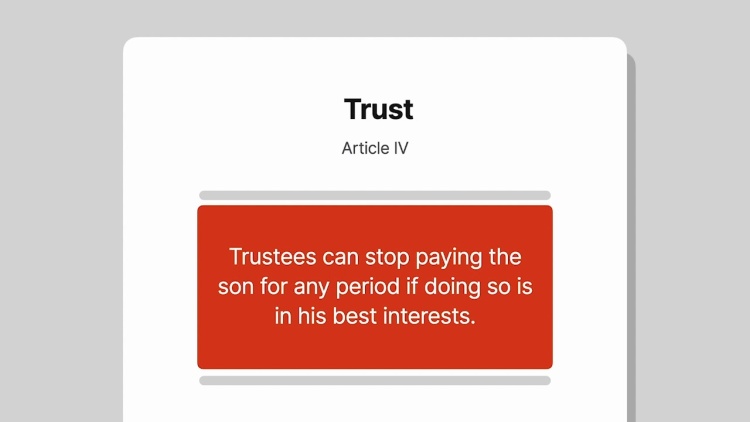Old Colony Trust Co. v. United States
United States Court of Appeals for the First Circuit
423 F.2d 601 (1970)

- Written by Christine Raino, JD
Facts
The settlor of an inter vivos trust designated himself as one of the trustees during his lifetime and made his son the life beneficiary. Eighty percent of the trust income was payable to his son and the remaining twenty percent was added to the trust corpus. Under Article Four of the trust, the trustees had the discretion to increase the son’s income beyond eighty percent as “needed in case of sickness, or desirable in view of changed circumstances,” or to stop paying income if doing so was “for his best interests.” In addition to giving the trustees broad discretion in the administration and management of the trust, Article Seven empowered the trustees “generally to do all things in relation to the Trust Fund which the Donor could do if living and this Trust had not been executed.” When the settlor died, the United States government (defendant) sought to include the principal of the trust in the settlor’s taxable estate asserting that the settlor exercised ownership control over the trust, making it subject to estate tax under 26 U.S.C. §§ 2036(a)(2) and 2038(a)(1). Relying on the decision in State Street Trust Co. v. United States, 263 F.2d 635 (1st Cir. 1959), the goverment claimed that the settlor had retained the right to “designate the persons who shall possess or enjoy the [trust] property or income” under Article Seven of the trust. The executor of the settlor’s estate (Executor) (plaintiff) paid the tax and brought an action in the district court to have it refunded. The district court denied the refund and the Executor appealed to the United States Court of Appeals for the First Circuit.
Rule of Law
Issue
Holding and Reasoning (Aldrich, J.)
What to do next…
Here's why 907,000 law students have relied on our case briefs:
- Written by law professors and practitioners, not other law students. 47,100 briefs, keyed to 996 casebooks. Top-notch customer support.
- The right amount of information, includes the facts, issues, rule of law, holding and reasoning, and any concurrences and dissents.
- Access in your classes, works on your mobile and tablet. Massive library of related video lessons and high quality multiple-choice questions.
- Easy to use, uniform format for every case brief. Written in plain English, not in legalese. Our briefs summarize and simplify; they don’t just repeat the court’s language.





